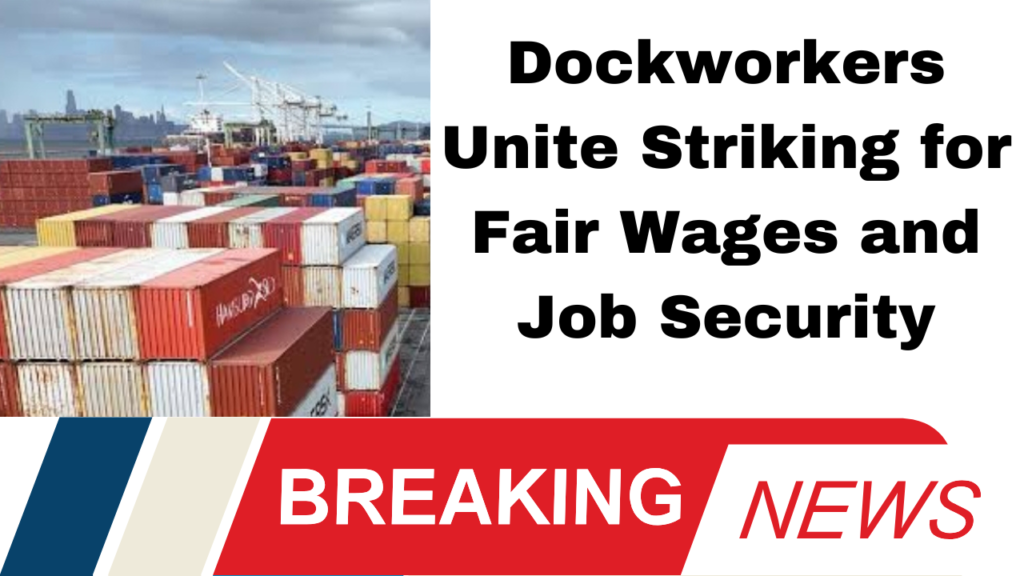Dockworkers from Maine to Texas have launched a strike, impacting 36 ports and potentially reigniting inflation. This historic action by the International Longshoremen’s Association (ILA) marks the first strike since 1977, as approximately 45,000 members demand better wages and job protections against automation.
The contract between the ILA and port authorities expired at midnight, despite reports of progress in negotiations earlier. Workers initiated picket lines early Tuesday, chanting, “No work without a fair contract.” Local union leaders emphasize that the strike will continue until the union’s demands are met, citing the need for a ban on automation in their jobs.
ILA President Harold Daggett highlighted that shipping companies profited significantly during the pandemic and are now expected to compensate workers fairly. The union’s initial demand included a 77% pay raise over six years, a response to rising inflation and stagnant wage growth. Current ILA salaries average around $81,000 annually, with some members earning over $200,000 with overtime.
Negotiation Stalemate
The U.S. Maritime Alliance, representing the ports, acknowledged that wage offers had moved closer but failed to reach a consensus. The alliance proposed a 50% raise over six years, but the ILA rejected this offer, stating it did not meet their expectations for wages and protections against automation.
Experts warn that if the strike persists for several weeks, it could severely disrupt the U.S. supply chain. While retailers have stockpiled goods in anticipation, prolonged stoppages could lead to shortages and price increases for consumers. Specific commodities, such as bananas which constitute 75% of the nation’s supply are particularly at risk, as the affected ports handle 3.8 million metric tons annually.
The strike’s timing, just weeks before the presidential election, adds political pressure. Retailers and producers hope for swift resolution or federal intervention, as President Biden has previously supported union negotiations. However, Biden has indicated he will not intervene directly, instead urging both sides to reach an agreement amicably.
As negotiations stall, supply chain experts predict significant delays and economic impacts, potentially costing the economy up to $4.5 billion per day if both East and Gulf Coast ports remain shut down. Analysts note that the effects could ripple into 2025, affecting industries nationwide.
The ongoing strike by dockworkers highlights the critical intersection of labor rights and economic stability. As the situation evolves, the nation will be watching closely to see if a resolution can be reached before significant disruptions occur.
